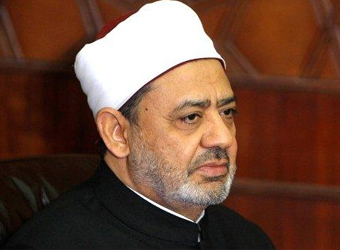In a statement signed by Grand Sheikh Ahmed El-Tayyeb and published on Al-Azhar’s Facebook page, Al-Azhar called on the Arab League, the Organisation of Islamic Cooperation, the European Union, the United Nations, and decision-makers in Arab and Muslim countries to take all political and economic pressures to force the government in Myanmar to stop religious and racial discrimination.
Al-Azhar also called on all international and human rights organisations to “take the required procedures to investigate in these shameful crimes, trace those who committed them, and deliver them to International Court of Justice as war criminals.”
“The world has witnessed over the past few days reports circulating in the media of terrifying and horrifying photos for acts of murdering, displacement, burning, genocide, and brutal massacres that have led to the killing of hundreds of women, children, youth, and the elderly, who have been besieged in Rakhine State in Myanmar,” the statement reads.
In the last two weeks alone 270,000 mostly Rohingya civilians have fled to Bangladesh, overwhelming refugee camps that were already bursting at the seams, the UN told AFP.
Others have died trying to flee the fighting in Rakhine State, where witnesses say entire villages have been burned since Rohingya militants launched a series of coordinated attacks on August 25, prompting a military-led crackdown.
More than 1,000 people may already have been killed in Myanmar, mostly minority Rohingya Muslims, a senior United Nations representative told AFP on Friday.
This barbarian and inhumane scene would not have happened if “the global conscience was not dead,” according to Al-Azhar’s statement.
The statement stressed that the denouncements from international organisations are not enough.
Adding that if the victims were “Jewish, Christian, Buddhist, or any other religion but Muslim” these organisations would have reacted more quickly and firmly.
The statement referred to Al-Azhar’s efforts in solving the conflict in Rakhine by bringing the different parties to peace talks in Cairo earlier this year.
However the efforts that were made during the talks have been neglected, according to the statement, adding that these kind of crimes are “the strongest reasons” behind terrorism.
The Rohingya have long been subjected to discrimination in mostly Buddhist Myanmar, which denies them citizenship and regards them as illegal immigrants from Bangladesh, even if they have lived in the country for generations, according to AFP.
Bangladesh has struggled to cope with the latest influx, which takes the number of Rohingya refugees in the squalid refugee camps on its border with Myanmar to around 670,000.
Myanmar’s Nobel Peace Prize winner Aung San Suu Kyi, who spent years under house arrest when Myanmar was a military dictatorship, is now the country’s de facto leader with the title of State Counsellor.
But she has so far failed to speak out on the violence, leaving her global reputation in tatters.
Rights groups, activists — including many who campaigned for her in the past — and her fellow Nobel laureates Malala Yousafzai and Archbishop Desmond Tutu have condemned her.
Source: Ahram online
